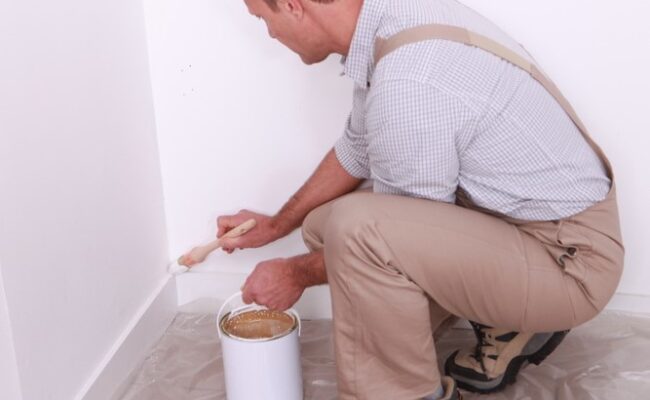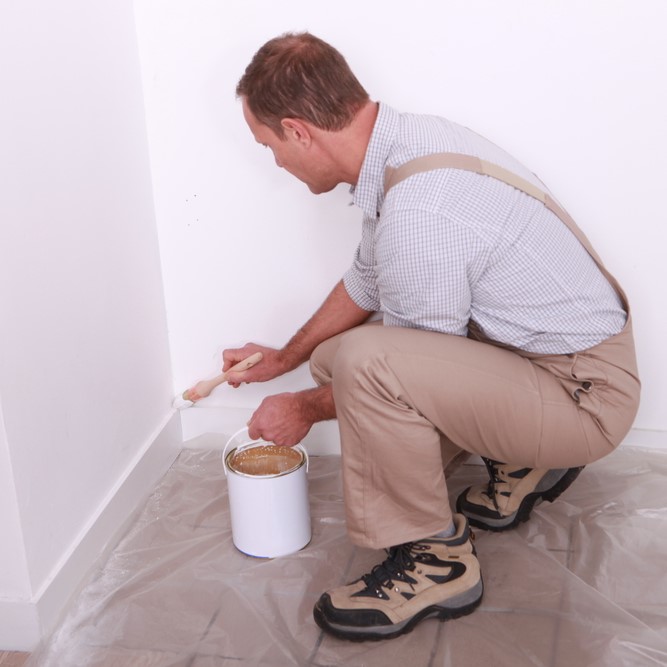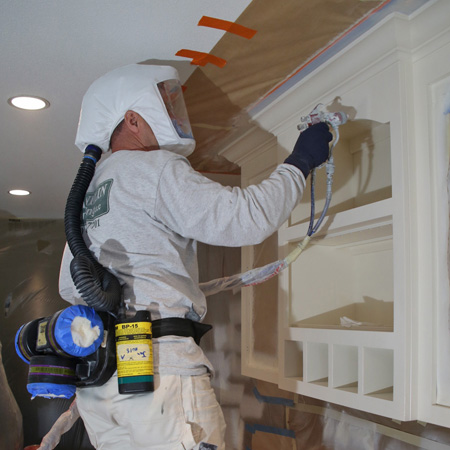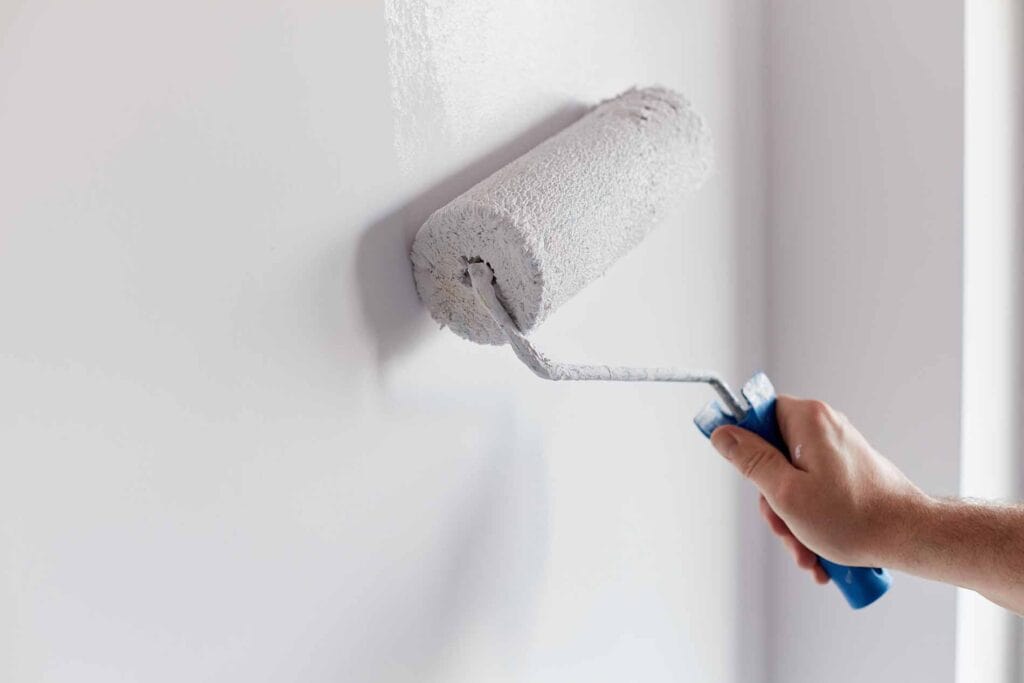It’s natural to deliberate endlessly over the color of paint for a home project, but choosing from among the different types of paint is the best place to start. For instance, do you need paint that’s easy to clean because it’s for a high-traffic area? Or do you need paint that will be mildew-resistant because it will be used for a bathroom? Below are different types of paints and tips on how to choose the right kind of paint for your project.
 Oil-Based Paint
Oil-Based Paint
For great durability and affordability plus a rich finish, oil-based paint is ideal, especially considering that it is a fine choice for most surfaces. Oil-based paints are water-resistant and deliver a beautiful glossy finish. This type of paint is suitable even for baseboards, which are prone to get badly scuffed.
There are downsides worth considering, as well. Reasons you may opt not to choose oil-based paints include:
- This paint emits strong fumes,
- Turpentine must be used to clean the paint from brushes
- Fixing mistakes isn’t a quick process.
Enamel Paint
If you are painting furniture, an outside surface, or anything else that needs a durable coating, enamel paint may be a perfect choice. Enamel paint can withstand such harsh conditions as brutal rays of the sun, relentless wind gusts, and driving rain.
Before choosing enamel paint, consider that it has some downsides. It is difficult to achieve a smooth coat plus enamel paint is:
- Not environmentally friendly,
- Not breathable, and it is
- Prone to become brittle over time
Latex-Based Paint
For exterior painting, latex-based paint is typically the go-to option. Because it is water-based, the application is easy–much easier than it is with oil-based paint. Subsequent coats can be applied within one hour when you use latex paint because it dries quickly and doesn’t trap moisture. Touch-ups are a snap.
Drawbacks to using latex-based paints include that it is not as durable as oil-based paints, it can chip, and sanding between coats is needed when used on woodwork. Also, latex-based paint can rust metal and it tends to turn yellow over time.
Types of Interior Paint Finishes
Whether your interior paint project is the kitchen, the living room, a side table, or another type of surface, you will choose from the following types of paint finishes:
- Flat
- Matte
- High Gloss or Semi-Gloss
- Eggshell
- Satin
Flat Paint
Flat paint is lacking in texture, durability, and reflective qualities. It’s not the right choice for high-traffic areas. It is, however, highly affordable and perfect for ceilings and rooms free from the everyday hubbub of life. A lovely flat finish has undeniable appeal.
Matte
Matte finishes have a few small differences as compared with flat paint. Matte is a bit glossier and delivers more durability. Hiding flaws is much easier if you choose matte paint, especially as compared with a glossy finish.
 High Gloss and Semi-Gloss
High Gloss and Semi-Gloss
The shine of a high gloss and semi-gloss paint brings plenty of bling and sophistication, yet they are easy to clean. For painting kitchen cabinets, you can’t go wrong with high-gloss paint. Both high gloss and semi-gloss paint are very easy to clean and scrub. They are also stain-resistant—so use sparkling white without fear of regret! Imperfections are easily noticed, however, when you apply a high gloss finish.
Eggshell
Eggshell is a great choice when you want durable paint with a low-level sheen that’s easy to clean using a damp cloth. An eggshell paint finish falls between matte and glossy.
Satin
Satin paint strikes a great balance between a flat finish and a high-gloss finish. For dining rooms, hallways, bathrooms, and bedrooms, you can’t go wrong with satin paint. In fact, satin is the most common type of
interior paint finish.

Frank Campanelli, the esteemed founder of Franklin Painting LLC, has been leading the company since 1986. He takes immense pride in the stellar reputation his dedicated team has built by consistently delivering top-notch service to each customer.


 Oil-Based Paint
Oil-Based Paint High Gloss and Semi-Gloss
High Gloss and Semi-Gloss